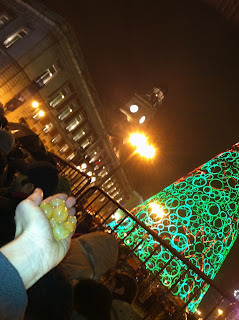July 26, 2008 - Copan, Honduras

"We realize that if there is ever an armed struggle here, it will be the most barbaric massacre you can imagine. Because the Honduran military, thanks to the gringos, is armed to the teeth."
- Elvia Alvarado
No sleeping-in on the weekend. We rose n' shined at 6am for bird watching, running from bulls, breakfast in a local village home, and exploration of an old coffee plantation. However, the real attraction was our guide. As the most famous nature guide in Honduras and recognized throughout much of Central America, he is also employed by many U.S. Universities.

A native Honduran, he provided insight into both the ecological and social history of his country. Through discussion of conflicting interests of Central American countries, he recounted some of his 9 year old memories of The Soccer War.
Although many believe it was the 1970 World Cup elimination match competition between Honduras and El Salvador, the tension was merely the spark that finally lit the fire.
For years Honduras and El Salvador disputed over the border line due to land shortages and immigration. Landless El Salvadorian campesinos would cross over the border to take Honduran land {at the same time wealthy urban Hondurans were also taking the Honduran campesitos land - but this was overlooked due to propoganda focused on El Salvador}.

After the first two World Cup elimination matches {1-0 Honduras and 3-0 El Salvador} ended in excessive citizen violence, the final match was postponed.
Within a month, El Salvador attacked Honduras, but when Honduras destroyed El Salvador's main fuel depot, El Salvador retreated.
+ The Soccer War lasted 100 hours
+ About 2,000 Hondourian campesinos died
+ 130,000 Salvadorians returned to their country
The final World Cup elimination match was played in Mexico City. El Salvador won 3-2. However, as is often found in war, nothing was accomplished and no one won.


